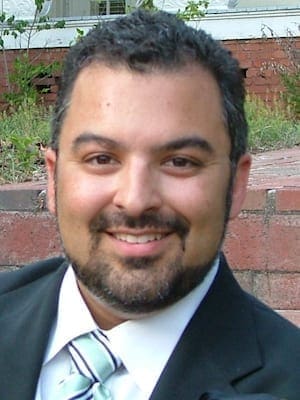There is no little controversy surrounding education reform of late, particularly as it relates to Common Core, an education initiative originally proposed by governors across the nation.
Common Core, though confused by myths and misnomers, provides nationally recognized benchmark standards and competencies in mathematics and language arts.
When I taught high school social studies, I saw the value in having standards-based benchmarks. Everyone knows that if you learn history any given year, you will never finish an entire textbook.
For example, how many of us grew up learning about world wars and the Industrial Revolution, but failed to learn anything past the Eisenhower administration?
For every chapter of a textbook that I taught, I had to narrow down the content by asking, “What do students need to know? How will this help students become critical thinkers with both the big picture and small picture of history? How will this inspire students to be life-long learners?”
These questions usually garnered three or four “standards” that formed a common core of competencies my students had to learn and assimilate.
Now, years later, public education has become muddied by standardized testing and haphazard teacher and student assessments. Things got in the way.
Likewise, just as there is a crisis in public school education content, there is also a crisis in faith formation and Bible education. Christianity, in particular, has become muddied by other priorities.
When you have more people gather at the ball field or the local diner on Sunday mornings than attend church, you know you have a crisis on your hands.
Some seminaries have confronted the lack of Bible literacy by encouraging pastors and other leaders to focus on Bible education in the pulpit.
As a result, it is not unusual to find pastors preaching for more than 30 minutes in an expository, verse-by-verse “teaching” style.
I hear many people complain that the length of these sermons is cumbersome; but, for many churchgoers, the sermon is the only time during an average week that a Christian learns about the Bible.
It’s not a pastor’s fault that he or she has to compete with sports, work schedules, extracurricular activities and dwindled loyalty.
The little, precious time that Christians now spend in Bible study or groups focusing on the Bible has forced many churches to develop a common core Christianity.
We only get families for one hour a week: What is needed in every age group? What biblical lessons take priority when it comes to faith? What content is summarily left out?
Churches come to different conclusions about what competencies parishioners should learn.
In Catholic and Episcopal congregations, for example, emphasis is placed on liturgy and sacraments.
Evangelicals focus on community service and personal virtues. Mainline churches err on the side of social activism and community faith formation.
This is not unusual, for there seems to be as many competencies in the Bible.
The book of James, for instance, is very practical and teaches lessons for both community and individual growth.
The Old Testament prophets call God’s people back to the basics of caring for the poor, obeying God and living a life of holiness.
Even the gospels are diverse in their common cores. Matthew stresses Jesus’ righteousness and right living. Mark’s gospel encourages unwavering faith in Jesus’ lordship.
Luke emphasizes hospitality and social justice. John focuses on individual devotion and spiritual intimacy with Christ.
In these days of busy schedules and declining church attendance, narrowing down Bible education into a type of Christian common core is unavoidable.
This will require prioritization, but it will also require churches to teach people the most important lesson of them all: That nothing can replace an intimate, personal relationship with Jesus; and that no amount of churchgoing can replace a believer’s in-depth personal devotion and study of God’s Word on a daily basis.
 Joe LaGuardia is senior pastor of Trinity Baptist Church in Conyers, Georgia. He is the author of “Awe and Trembling: Reflections for the Christian Journey,” a book of articles and homilies. A version of this article first appeared on his blog, Baptist Spirituality, and is used with permission.
Joe LaGuardia is senior pastor of Trinity Baptist Church in Conyers, Georgia. He is the author of “Awe and Trembling: Reflections for the Christian Journey,” a book of articles and homilies. A version of this article first appeared on his blog, Baptist Spirituality, and is used with permission.
Joe LaGuardia is senior pastor of First Baptist Church in Vero Beach, Florida.

